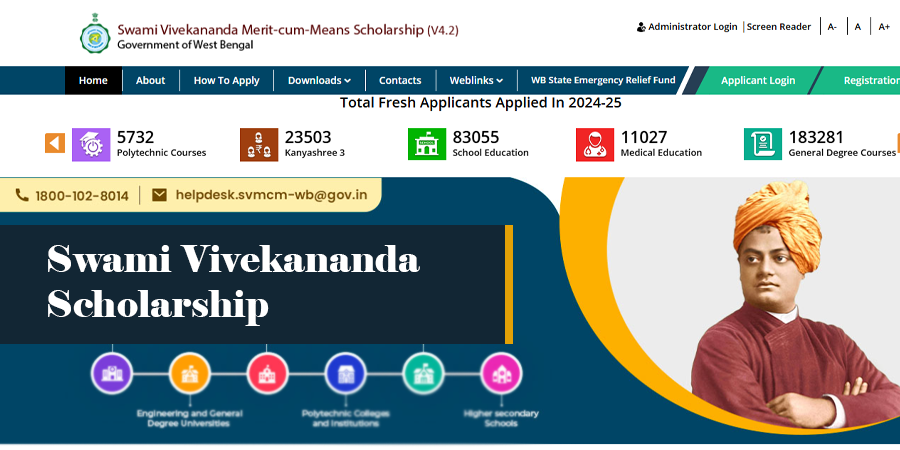A BBA in Supply Chain Management enables students to gain the competence required for this important function in businesses and organizations. Some of the important sections of the program include operation logistics, inventory management, purchasing, and distribution. The program covers key areas such as logistics, inventory management, procurement, and distribution. Students learn to optimize supply chain operations, enhance organizational efficiency, and adapt to global market changes. This degree ensures that the graduates have a wide market opportunity to pursue different careers in industries such as manufacturing, retailing, and logistics to support strategic planning and operational management.
What is Supply Chain Management?
Supply Chain Management (SCM) in a Bachelor of Business Administration (BBA) program involves the study of planning, implementing, and controlling the efficient flow of goods, services, and information from the point of origin to the consumer. It encompasses logistics, procurement, inventory management, and distribution, focusing on optimizing processes to reduce costs and improve customer satisfaction. SCM links functional operations to provide organizational, supplier, manufacturer, and retailer efficiency, as well as competitiveness in response to market needs. Graduates are equipped with the ability to coordinate supply chain processes and can help increase the performance of a firm and its competitive advantage in the global marketplace.
Why choose a BBA in Supply Chain Management?
- There is a high demand for more qualified supply chain professionals due to companies’ awareness of the relevance of supply chain management systems. Skilled professionals are required in the business to handle the issues of supply chain, purchasing, stock, and distribution for effective operation. Those who complete a BBA in Supply Chain Management degree are well suited for these positions and are expected to significantly positively impact organizations in many industries.
- BBA in supply chain management leads to various employment opportunities in the world of supply chain management. Opportunities for graduates exist in the areas of logistics, purchasing, production scheduling, stock control, distribution, materials handling, and warehousing. Potential employers range from manufacturing industries to retail industries, health sector industries, technology industries, and e-commerce industries, among others. This means that graduates are free to select an occupation that suits them the most.
- Supply chain professionals are usually well paid since their role is very important in helping organizations perform well. Several industry reports indicate that supply chain management positions have good remuneration opportunities, as well as more skilled and experienced professionals in the niche. Such financial interest is a plus for anyone who wants to venture into the field.
- Supply chain management is inherently global, dealing with international trade, global sourcing, and cross-border logistics. Courses and case studies for a BBA program in this field can help students develop an understanding of the global environment of the supply chain and prepare for its effective management. This global outlook is very relevant today, given the integral nature of the global village.
- Students in a BBA in Supply Chain Management program develop a range of valuable skills, including analytical thinking, problem-solving, and decision-making. They learn to work with the latest software and technologies in managing supply chains for planning. Also, they acquire knowledge in project management, negotiation skills and leadership which makes them flexible employees who can be useful in diverse operations.
The curriculum of a BBA in Supply Chain Management
The curriculum for a BBA in Supply Chain Management is designed to teach both theoretical and practical aspects of the efficient supply, procurement, distribution, and communication of products and services. Fundamental courses cover logistics, procurement, inventory management, and distribution, with additional business principles that include marketing, finance, and business management. Students also learn complex concepts such as global supply chain management, supply chain sustainability, and supply chain analysis. Practical learning is emphasized through case studies, internships, and industry projects, preparing graduates to optimize supply chain operations and drive business success in a global market. Below is the common syllabus provided by different universities.
Semester-I | Semester-II |
· Fundamentals of Statistics · Business Computing · Computer Applications · Basic Supply chain management · Economics(Micro) | · Organizational Behaviour · Business Communication · Supply chain service management · Supply chain risk management · Marketing management |
Semester-III | Semester-IV |
· Production planning & control · Financial Accounting · Environmental Sciences · Managerial Economics · Personal Enhancement | · Risk, Disaster · Insurance management · Supply chain practices · Human Resource Management · Cost Accounting |
Semester-V | Semester-VI |
· Facilities Management · Inventory & Quality Management · Freight Transport System · Inventory Management · E-Commerce | · Internet Technology · Supply Chain Management · International Operations · Projects · Internship |
Top Universities offering BBA in Supply Chain Management
S.no. | Universities |
| 1 | Indian Institute of Management (IIM) Indore |
| 2 | Symbiosis International University, Pune |
| 3 | Xavier University, Bhubaneswar |
| 4 | NMIMS University, Mumbai |
| 5 | Amity University, Noida |
| 6 | Lovely Professional University, Punjab |
| 7 | Manipal Academy of Higher Education (MAHE), Manipal |
| 8 | Narsee Monjee Institute of Management Studies (NMIMS), Bangalore |
| 9 | Manipal University, Jaipur |
| 10 | Shaheed Sukhdev College of Business Studies (SSCBS), Delhi University |
Career Opportunities after BBA in Supply Chain Management
- Logistics Manager
Logistics managers are responsible for the flow of goods through the supply chain starting from its manufacturing point to its place of consumption. They oversee logistics, control the stock and deliver the products on time to the consumers.
- Procurement Specialist
Supply chain analysts collect, and analyze information with the objective of increasing supply chain efficiency. They conduct quantitative analyses, develop predictive models, and employ computer applications to locate opportunities for enhancement and suggest strategic directions.
- Supply Chain Analyst
Inventory managers are in charge of managing and controlling inventory within a particular organization. It helps maintain the right inventory, reduce holding costs, and avoid situations where there is either insufficient inventory or too much of it.
- Inventory Manager
Inventory managers are responsible for overseeing and controlling the flow of inventory within an organization. They ensure optimal inventory levels, minimize carrying costs, and prevent stock-out or overstock situations. With their expertise in inventory management principles and techniques, graduates of a BBA in Supply Chain Management are well-suited for roles as inventory managers in retail, manufacturing, and distribution companies.
- Supply Chain Consultant
Supply chain consultants engage with companies to define areas where the supply chain can be enhanced and better managed. They perform analysis, offer solutions, and effect change with regards to improving the supply chain and its efficiency while cutting costs.
- Operations Manager
Operations Manager are responsible for making decisions that affect daily operations of a business organization, production, procurement, and delivery of goods and services. They facilitate effective operations, coordinate resources, and implement changes to increase productivity and organisational success.
- Transportation Manager
Transportation managers are accountable for sourcing, scheduling, and integrating the movement of goods from one point to another in a supply chain. They are responsible for the overall supply chain, working with carriers and making sure that goods are delivered on-time and at the least cost possible.
Admission Criteria for Online BBA in Supply Chain Management in India
The admission requirements for an online Bachelor of Business Administration (BBA) program in Supply Chain Management in India differ across institutions. Here’s a general overview of common admission requirements and criteria:
- Prospective students are usually required to have completed their higher secondary education or its equivalent (such as 10+2 or A Levels) from a recognized board or institution. Some universities may also prescribe a minimum percentage or grade point average in the qualifying examination.
- Applicants to the institution are expected to complete an online admission form, which is provided by the institution. Besides the application form, other requirements may include a non-refundable application fee which differs from institution to institution.
Some universities may administer tests to determine their ability, critical thinking skills, and knowledge of business topics among students. These exams may comprise sections like numerical ability, verbal ability, logical reasoning, and general knowledge.
Admission Process for BBA in Supply Chain Management in Offline and Online Modes
Offline Mode:
- The candidates have to obtain the application form either from the university or college campus or obtain it online from the specific institution’s website.
- Fill the Form: Applicants must fill out the application form accurately, including the declaration of personal details, educational background, and other relevant information if needed.
- The candidates will need to attach with the completed form, relevant documents which include mark sheets/ transcripts of prior education, certificates, and passport size photographs.
- The fully completed application forms are completed with the necessary documents and can be hand-delivered or sent through mail to the address provided by the institution.
- There may be standardized Entrance Examination administered by some of the universities in order to test the abilities, the problem solving skills, and the business knowledge of the candidates.
- Applicants selected for admission are expected to enroll for courses by completing the formalities by tendering an acknowledgment fee and any other documentation required by the university.
Online Mode:
- Candidates complete an online application form and submit their personal information and scanned identifying documents, including academic documents, certificates, and photographs.
- Candidates fill out the online application form, providing necessary details and uploading scanned copies of required documents such as academic transcripts, certificates, and photographs.
- Applicants can pay the application fee online through available payment gateways.
Books Suggested for BBA in Supply Chain Management in India
1 “Supply Chain Management: Strategy, Planning, and Operation” by Sunil Chopra and Peter Meindl
- “Operations and Supply Chain Management” by F. Robert Jacobs and Richard B. Chase
- “Introduction to Materials Management” by J.R. Tony Arnold, Stephen N. Chapman, and Lloyd M. Clive
- “Logistics and Supply Chain Management” by Martin Christopher
- “Purchasing and Supply Chain Management” by Arjan van Weele
- “Supply Chain Logistics Management” by Donald J. Bowersox, David J. Closs, and M. Bixby Cooper
- “The Handbook of Logistics and Distribution Management” by Alan Rushton, Phil Croucher, and Peter Baker
- “Global Logistics and Supply Chain Management” by John Mangan, Chandra Lalwani, and Tim Butcher
- “Supply Chain Management: Concepts, Techniques, and Practices” by Shailendra Nigam and Supriya Ghosh
- “Supply Chain Management: Concepts, Techniques, and Practices” by Shailendra Nigam and Supriya Ghosh
Different modes to pursue BBA in Supply Chain Management
Distance Mode
- BBA in SCM through Distance mode allows students to study at their own pace and convenience. It means that the student can attend the lectures online, print course materials, and complete their assignments wherever they are, whether at work or at home. It is not necessary to attend physical classes.
- BBA in SCM through Distance mode also breaks geographical restrictions allowing the students to get enrolled in BBA programs offered by some of the most prestigious institutes of the world. This accessibility enhances the opportunities of basic education for those who live far from the established institutions or those who cannot afford to relocate in search of education to improve their knowledge in supply chain management.
- BBA in SCM through Distance mode often proves to be more cost-effective than traditional on-campus programs. The educational costs of online programs may be lower, and it means that a student will spend less money for transportation, housing, and other facilities. Also, online students can work at the same time, so they have the opportunity to develop their careers and make money to pay for college.
- The purpose of BBA in SCM through Distance mode is that they incorporate the use of technology in order to offer efficient, innovative, and student-centered learning. Students can freely use videos, presentations, forums and other multimedia in the classroom and they also address students with different learning preferences.
- BBA in SCM through Distance mode ensure that students from different background and locations across the globe are admitted, thus promoting a diverse community of learners. Students can perform group discussions, cooperative assignments, and work in groups with classmates, professors, or other students and industry experts from around the globe.
Online Mode
- Flexibility is one of the major advantages of undertaking an online BBA in Supply Chain Management. Flexibility is possible in online programs since students are not confined to conventional class schedules; thus, they can easily manage school and work, family, or other activities.
- Online BBA in Supply Chain Management offers the advantage of access to education regardless of the geographic location of students. This makes it easier for students to attend classes and do their coursework without physically attending class or campus from the comfort of their homes or any other place of their choice as long as they have an internet connection.
- Online programs may be cheaper than traditional ones and it can also be more cost effective since students would not need to spend money on transportation, housing or campus amenities. Besides, since online students can learn at their own convenience, they can still work and earn an income to cater for tuition fees’ costs.
- The Online BBA programs ensures students from various backgrounds and areas come together to enhance their learning experiences. Students can interact with other students, faculty members, and professionals from different parts of the world that are enrolled in the same course via discussion boards, group work, and assignments.
Part-Time Mode
- Part-time BBA programs in Supply Chain Management offer flexibility. As the name suggested, the student can pursue their course part-time. It also means that students can attend classes in the evenings, during weekends, or online, thus enabling them to continue practicing their professions or manage family responsibilities as they learn.
- For professionals who are already employed in organizations practicing supply chain management or supply chain-related industries, part-time BBA programs offer them a chance for promotion. Formal education can help the individuals develop their knowledge, skills as well as credentials hence leading to better employment and eligibility to the higher positions in supply chain management.
- This is especially the case with part-time BBA programs where classroom concepts are complemented by case studies, industry-based projects, and assignments whereby students can solve real-life supply chain management problems.
- One advantage of running part-time BBA programs is that many of them charge lower tuition fees than their full-time counterparts thus increasing the access of higher education for those who cannot afford full-time education. Moreover, the students are able to practice their professions while studying and thus the cost of education becomes less demanding.
Integrated Mode
- BBA integrated supply chain management programs give students a great opportunity to acquire not only theoretical knowledge but practical skills as well. They get theoretical knowledge through classroom teaching, cases, and assignments and also get practical exposure through internships and live projects with companies.
- Integrated BBA programs are developed in consultation with the supply chain management industry to ensure relevance and currency of the program. Students interact with the faculty who have industry exposure and can attend workshops, guest lectures and industrial visits which help the students to understand the current industry scenario.
- Such BBA composite programs help the students to interact with the corporate world, alumni, and more importantly the fellow students. By undertaking practical work placements, receiving industry specific guest speakers, seminar series and networking opportunities, students can establish a link to further their internships, job prospects and mentorship in the field of supply chain management.
other specialization of BBA
Summary
In conclusion, obtaining a BBA in Supply Chain Management in India is a gateway to a fulfilling profession in a key and expanding sector. Equipped with a rich curriculum, the actual learning experience of structure, networking opportunities, and skill development, the graduates are poised to overcome the growing challenges of the continuously evolving supply chain marketplace. It educates students for a wide range of jobs in logistic industries, procurement, inventory processes, and operations, with the opportunity to grow up to managerial positions. Altogether, the program of Bachelor of Business Administration in Supply Chain Management provides students with the strong base and the knowledge necessary to succeed in the modern business environment of India and foreign countries.


















